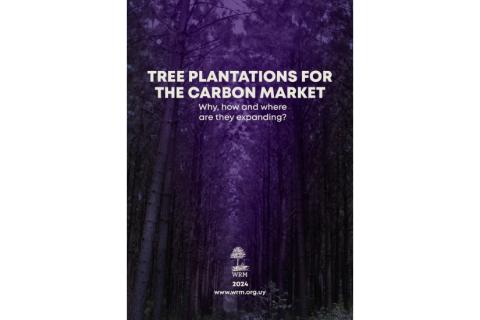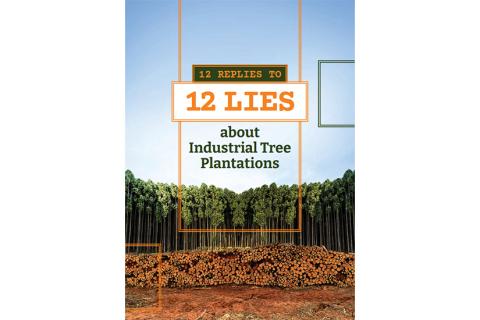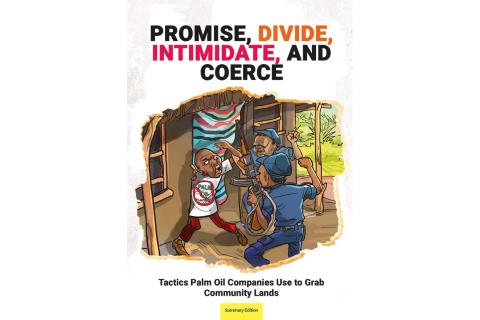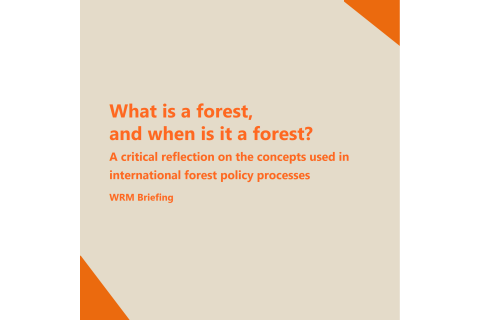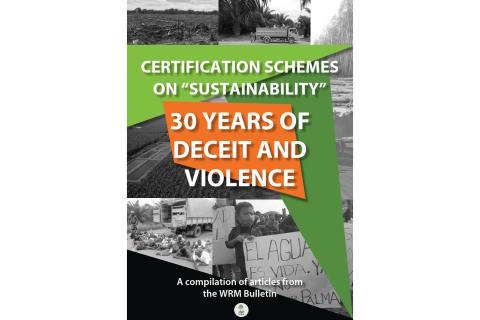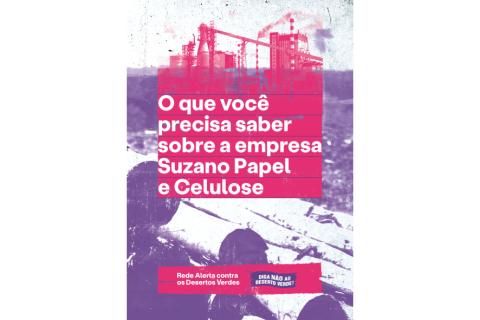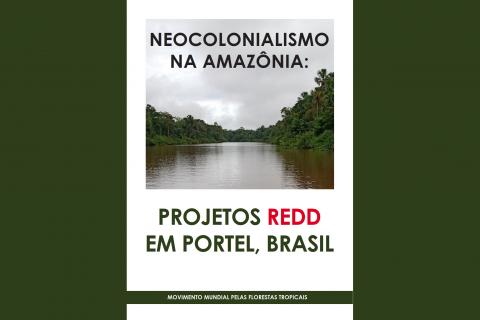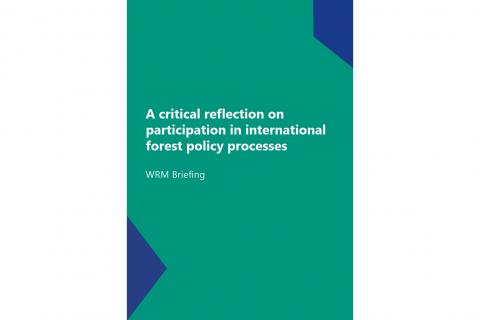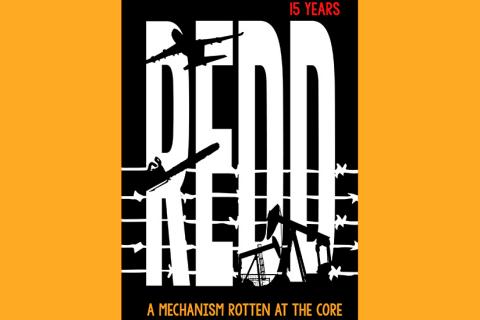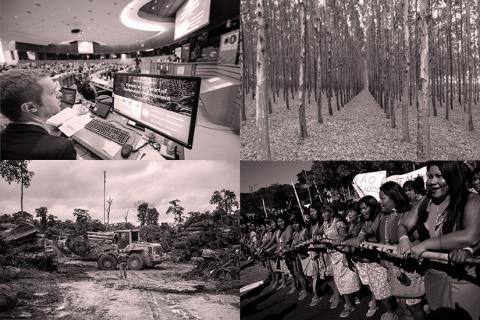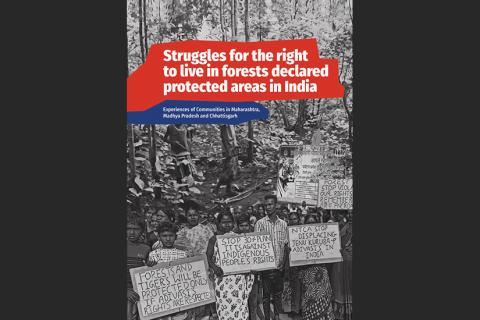This briefing provides an overview of the expansion of tree plantations aimed at carbon markets. Where are these plantations located, who is profiting from them, what have been the impacts for communities living on the lands these projects occupy, and what international initiatives are taking place to boost tree plantations for carbon offsetting.
Publications
This publication exposes the most common misleading statements currently used by plantation companies. It’s is based on the briefing "Ten Replies to Ten Lies" written by Ricardo Carrere in 1999.
This is a summary edition of the booklet “Promise, Divide, Intimidate and Coerce: 12 tactics palm oil companies use to grab community land”, launched in 2019 by the Informal Alliance Against Industrial Oil Palm Plantations in West and Central Africa. In this edition, you will find one tactic per page, together with an illustration.
On 21 March, which has been promoted by the FAO as the International Day of Forests, WRM is releasing a briefing about the importance of the words we use. The briefing explores how concepts like “forests,” which have been historically imposed and adopted without considering a diversity of viewpoints (in particular those of forest-dependent Peoples) contribute to the creation of policies that neither recognize this diversity nor halt deforestation.
This compilation of articles from the WRM Bulletin aims to underscore the damaging role played by companies and organizations involved in certification schemes.
In this booklet we share basic information about GE trees, in particular about seven varieties of eucalyptus trees that have already been approved in Brazil. This is the first country besides China to approve the large-scale use of GE trees.
Suzano is a Brazilian multinational company that produces cellulose and paper products from eucalyptus plantations. Read this booklet produced by the ‘Alert Against the Green Desert’ Network and find out important facts that are often hidden by this mega-company’s propaganda machine.
Amid the flurry of news about investments in carbon markets, a new WRM study has taken a closer look at a REDD initiative underway in the municipality of Portel, in the state of Pará in the Brazilian Amazon. The case illustrates what is known as "carbon colonialism".
On the eve of two new rounds of UN climate and biodiversity Conferences of the Parties (COPs), this document intends to reflect on participation in international forest policy processes. The briefing is based on WRM’s experience and that of grassroots activists with whom WRM collaborates.
This publication gathers eleven articles that reflect on fundamental and dangerous dimensions of Reducing Emissions from Deforestation and Forest Degradation (REDD), the dominant forest policy around the world since 2007.
On the eve of March 21, the day FAO celebrates its International Day of sustainable forest destruction, WRM is releasing a briefing that looks back at a UN-led process on the Underlying Causes of Deforestation that took place more than 20 years ago. The Underlying Causes identified in 1999 do not only remain as significant today as they were. They have even been reinforced in many ways.
New publication calls attention to the devastating impacts of Protected Areas in India.
